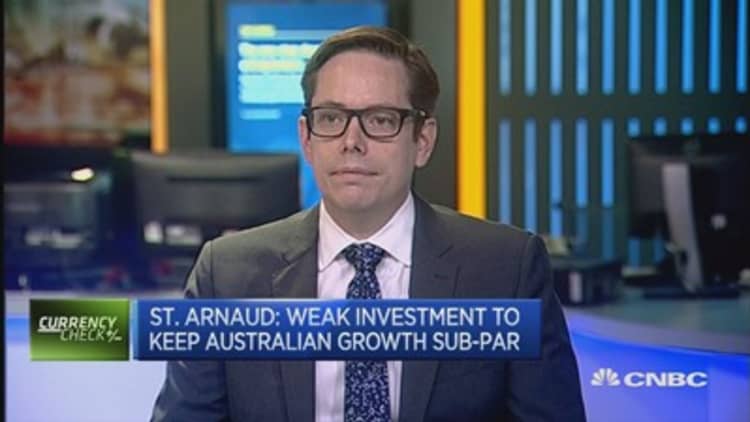The euro strengthened on Thursday, briefly rising above $1.10 for the first time in a week, as the Greek parliament approved a second set of reforms required to start negotiations with lenders in a bid to avert bankruptcy.
The greenback stalled against other major currencies despite expectations that the U.S. Federal Reserve would raise interest rates by year end.
Of Athens' latest move toward a bailout, "it's perceived as a positive for the euro. Greece might even be perceived as taking the initiative to revive talks with creditors," Paul Christopher, chief international strategist at Wells Fargo Advisors in St. Louis.
Other analysts downplayed the pop in the euro, as the long-term ability of Greece to stay solvent and keep its membership in the euro zone remains in doubt.

"The market has been short euro. It's not surprising to go through these periodic bouts of (short-covering) squeeze," said Vassili Serebriakov, currency strategist at BNP Paribas in New York.
The euro was last up 0.6 percent against the dollar and yen at $1.1000 and 136.19 yen, respectively.
The greenback pared losses briefly versus the yen after the government said first-time filings for unemployment benefits fell to 255,000 last week, the lowest since November 1973. This supported the view of an improving jobs market that may allow the Fed to raise interest rates as early as September.
Read MoreI see 'makings of protracted bear market': Gartman
The dollar resumed its earlier weakness as U.S. Treasury yields fell to two-week lows on growing losses on Wall Street and deflation worries from falling commodity prices. It was down 0.1 percent at 123.79 yen but held above a global session low of 123.68 yen.
The dollar index was last down 0.5 percent at 97.094.
The yen was briefly on the defensive after the International Monetary Fund warned Japan to avoid over-reliance on a weak currency to reflate its economy.
The IMF also cautioned a further rise in the dollar could hurt other countries.
Among other major currencies, the New Zealand dollar was the biggest mover after the country's central bank disappointed those who had bet on a larger cut in interest rates and toned down its call for more falls for the kiwi.
The kiwi was last up 0.6 percent at $0.6617, above a six-year low of $0.6498 set on July 14.

